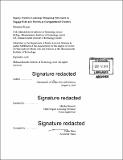| dc.contributor.advisor | Mitchel Resnick. | en_US |
| dc.contributor.author | Roque, Ricarose Vallarta | en_US |
| dc.contributor.other | Program in Media Arts and Sciences (Massachusetts Institute of Technology) | en_US |
| dc.date.accessioned | 2017-03-20T19:40:54Z | |
| dc.date.available | 2017-03-20T19:40:54Z | |
| dc.date.copyright | 2016 | en_US |
| dc.date.issued | 2016 | en_US |
| dc.identifier.uri | http://hdl.handle.net/1721.1/107577 | |
| dc.description | Thesis: Ph. D., Massachusetts Institute of Technology, School of Architecture and Planning, Program in Media Arts and Sciences, 2016. | en_US |
| dc.description | Cataloged from PDF version of thesis. | en_US |
| dc.description | Includes bibliographical references (pages 127-132). | en_US |
| dc.description.abstract | The ability to create, design, and express oneself with technology is an important fluency for full participation in today's digitally mediated society. Social support can play a major role in engaging and deepening what young people can learn and do with technology. In particular, parents can play many roles, such as being collaborators, resource providers, and co-learners with their kids. In this dissertation, I explore the possibilities of engaging kids and their families as computational creators - providing opportunities and support to enable them to create things they care about with computing, to see themselves as creators, and to imagine the ways they can shape their world. I especially focus on families with limited access to resources and social support around computing. I describe the design of a community-based outreach program called Family Creative Learning, which invites kids, their families, and other families in their community to create and learn together using creative technologies. I use a qualitative approach to document the complex and diverse learning experiences of families. Through studies of family participation, I examine how kids and their parents supported one another and how the Family Creative Learning environment, activities, tools, and facilitation supported families in their development as computational creators. As families built projects, they also built perspectives in how they saw themselves, each other, and computing - developing identities as computational creators. | en_US |
| dc.description.statementofresponsibility | by Ricarose Roque. | en_US |
| dc.format.extent | 132 pages | en_US |
| dc.language.iso | eng | en_US |
| dc.publisher | Massachusetts Institute of Technology | en_US |
| dc.rights | MIT theses are protected by copyright. They may be viewed, downloaded, or printed from this source but further reproduction or distribution in any format is prohibited without written permission. | en_US |
| dc.rights.uri | http://dspace.mit.edu/handle/1721.1/7582 | en_US |
| dc.subject | Program in Media Arts and Sciences () | en_US |
| dc.title | Family creative learning : designing structures to engage kids and parents as computational creators | en_US |
| dc.title.alternative | Designing structures to engage kids and parents as computational creators | en_US |
| dc.type | Thesis | en_US |
| dc.description.degree | Ph. D. | en_US |
| dc.contributor.department | Program in Media Arts and Sciences (Massachusetts Institute of Technology) | en_US |
| dc.identifier.oclc | 974646609 | en_US |
